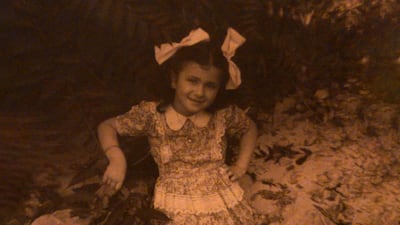Haifa Al Kaylani, the Palestinian-British founder of Arab International Women's Forum, has been appointed an Officer of the Most Excellent Order of the British Empire (OBE).
Anne, the Princess Royal, awarded Mrs Al Kaylani with the honour his week during an investiture at Windsor Castle in recognition of her services to women, young people and cultural relations between the UK and the countries of the Middle East.
For more than 20 years, London resident Mrs Al Kaylani has sought to empower women in Arab countries by connecting them to institutions in the UK and around the world.
The Arab International Women’s Forum, which she founded in 2001 and still heads, supports women and young people in setting up businesses and developing skills.
Mrs Al Kaylani said she was “deeply honoured and humbled” to receive the distinction during a “profoundly moving and memorable experience”.
The accolade marks “a special and very touching milestone not only in my four-decades-long work as a development economist, but in my personal journey, and in recognising my contributions to the social and economic empowerment of women and young people in the Middle East and North Africa,” she added.
“I am more motivated than ever to continue my work, inspired by the values and aspirations that this prestigious award embodies.
“To be recognised in such a manner is truly a privilege, and it has encouraged me to further dedicate myself to making a positive impact in the sustainability areas I care passionately about and for the region we all love dearly.
“It is a testament to the collective effort, dedication, and support of my colleagues, family, and the communities I have had the privilege to serve and collaborate with.
“This honour is truly a shared achievement, and I look forward to the opportunities and challenges that lie ahead as we work together towards a brighter, more inclusive and more prosperous and peaceful future for women and young people and all in the Arab region and the world.”
Mrs Al Kaylani was born into a Palestinian-Lebanese family and went to school in the UK, later studying at Oxford University.
“In all my work, I am addressing the subject as an economist, not as a feminist,” she said.
“I am a development economist, and for me, without empowering 50 per cent of its population no country can develop politically, socially or economically.”
She was motivated to set up the AIWF, in part, by negative stereotypes of Arab women in the UK at the time.
“There was a lot of misunderstanding about the role of women in the region,” she recalled.
She had encountered these stereotypes while serving as the president of the International Federation of Women’s Associations in London.
People were surprised to see an Arab and Muslim woman at the helm of the organisation.
“I would be asked: You’re an Arab? You’re a Muslim?” she recalled.
Since then, the AIWF has evolved to support women, young people and sustainability. Among her early projects was helping women in Arab countries to set up businesses.
“It was important to think of women as engines of growth,” she said.
Haifa Al Kaylani OBE's life - in pictures
The Arab uprisings in 2011 further inspired her to set up an initiative for young Arab women leaders.
“The youth were educated but they were not able to find jobs. They were not fully utilised,” she said.
Focusing on women aged 20 to 40 years, the AIWF held conferences across major Middle East capitals, including Abu Dhabi, and internationally.
“This was in order to discuss what is stopping them from optimising that potential,” she said.
The AIWF has focused on women’s role in addressing climate change and sustainability joining forces with Masdar’s Women in Sustainability, Environment and Renewable Energy platform (WiSER) to produce a report ahead of Cop28.
Mrs Al Kaylani gave four addresses at the climate change conference in December, including moderating a panel at the Arab Women Leader’s Summit.
“Women have to be at the table. Their voices must be heard,” she said.
Her understanding of the culture in Arab countries helped her navigate the challenging terrain with ease, she said.
“I come from the region. I am an Arab, very proudly with three roots, and a UK citizen. I understand our culture, I was brought up in our region with the appreciation for our heritage,” she said.
“When I address issues about the empowerment, I am saying we must support women’s roles as partners, at home, in society, in government, in the business sector.”
She paid tribute to her late husband, whom she says was her greatest supporter.
“The AIWF took a lot of my time over the years, and a lot of my family time. Without my husband’s support and encouragement, I could not have done it,” she said.
Yet she feared the challenges that the Israel-Gaza war would bring to the region.
“Our region has been plagued over the years by conflict. It’s women and children who suffer the most. We have seen that with our own eyes,” she said.
“It’s very important that we try to foster peace. Without peace there cannot be growth, there cannot be prosperity, people cannot work, cannot build a better future for their families. And of course, women’s empowerment also suffers.
“The most important thing we need to work on is working for peace.”













